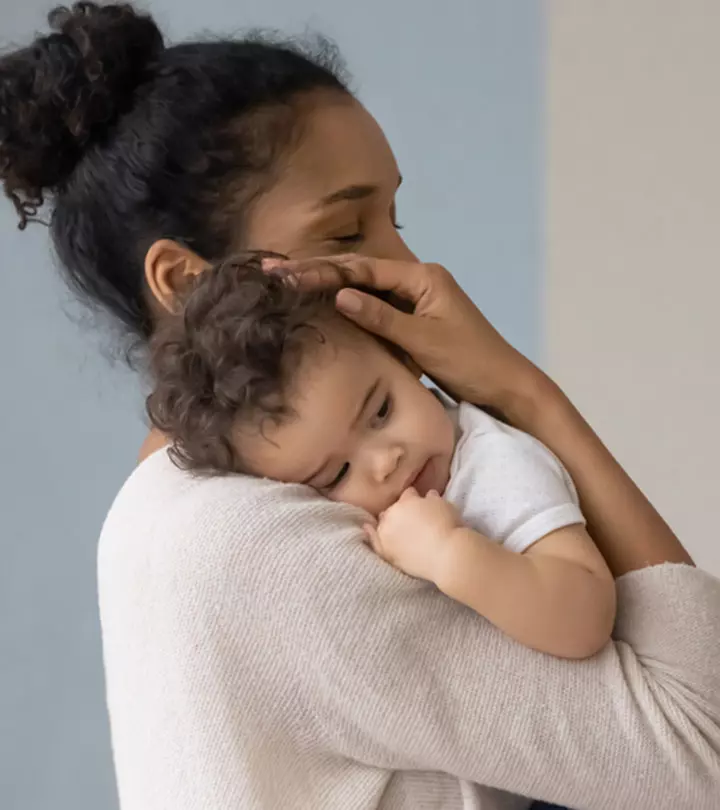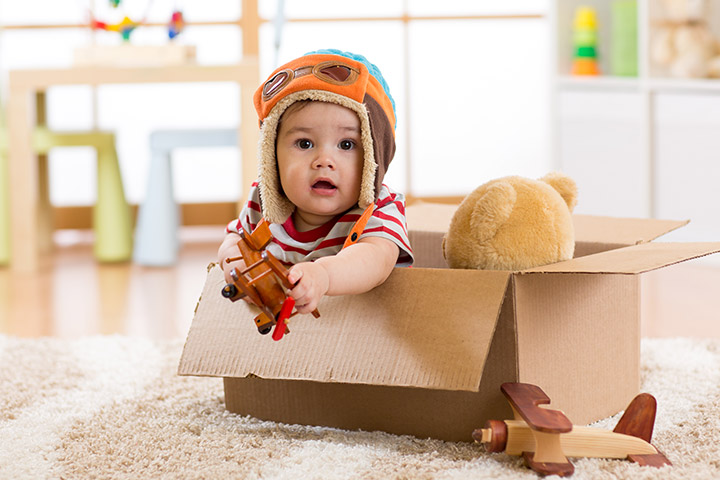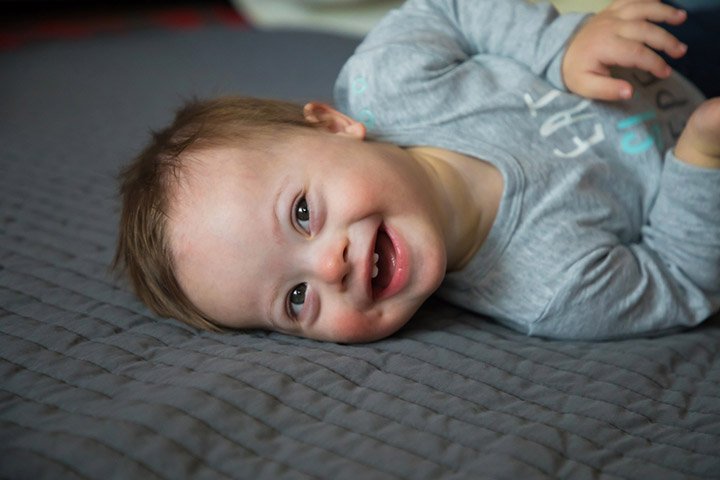
Image: Shutterstock
Everybody knows that every infant is unique. They grow and develop at different paces so there is no point in forcing them to reach a specific milestone in a specific time frame. However, parents do need to be aware that the failure of reaching these milestones and the lack of interest or engagement shown by your baby may indicate that they have developmental delays or issues. The delay in physical development can lead to issues in emotional and social development, lack of communication skills, and disabilities in learning arising later on in the future. So, as important as it is to give your little one space and time to figure out things on their own, it’s also important to keep track of where they are in terms of their development. So that, if your child shows a delay, you are able to recognize it quickly and get a prompt medical diagnosis to start treatment. Here are a few warning signs of developmental delays in babies and kids.
Signs Of Developmental Delays
1. 2 To 4 Months
If your 2-month-old baby does not respond to loud noises, cannot follow moving objects with their eyes, and can’t lift up the head while on their tummy, they may have developmental delays. This can also be true if they don’t smile at other people or don’t bring their hands to their mouth. If your fourth month old still has trouble smiling at people or watching moving objects and can’t hold their head steady, they have developmental delays. The same goes if they do not babble, don’t bring objects to their mouth, if they don’t kick or exert force with their legs when their feet touch a sturdy surface or if they look like they have trouble rotating their eyes in different directions.
2. 6 To 9 Months
Your six-month-old may have developmental delays if they don’t grasp things, show no affection towards their caregivers, don’t respond to the sounds around them or don’t produce sounds themselves. This can also be true if they don’t start rolling over in either direction, don’t squeal or laugh out in joy, have tight muscles and seem stiff or seem very floppy. By nine months, if your baby doesn’t exert force on their legs to stand when supported, doesn’t sit up with help or doesn’t babble, they may have a developmental delay. This can also be the case if they don’t play games that involve interactive play, don’t recognize their own name or the faces of familiar people, don’t look in the direction that you point at and can’t transfer a toy from one arm to another.
3. 12 To 18 Months
If your 12-month-old can’t crawl or stand using a support, doesn’t even attempt to say words like ‘dada’ and ‘mama,’ doesn’t make any gestures like shaking their head or waving their hands, they might have a developmental issue. They should also be able to find things that you hide and point at things at this stage. If your baby seems to be losing previously displayed skills, they may have developmental issues. By 18 months old, if your little one can’t walk, doesn’t copy others, hasn’t gained new words in their vocabulary, and doesn’t know at least 5-6 words, this may be a developmental problem. This is also true if they notice a caregiver leaving or returning and doesn’t care.
What Does Developmental Delay Mean?
This is a term used by doctors when an infant or child does not meet developmental goals within the broad range of normal milestones for babies. This delay could be observed in single or multiple areas. They may be gross motor skills, like sitting up, or fine motor skills like grasping at objects. This may be language and communication skills such as the inability to understand a language or speak anything, self-help skills like the inability to dress oneself or toilet train. Or it could be social skills, like holding eye contact or playing and interacting with others.
What Causes Developmental Delay?
In certain cases, a delayed development is caused by medical reasons. Maybe it’s complications rising from premature birth, or it could be a genetic disorder such as Down Syndrome. It can also be caused by some serious accident or illness. Usually, speech, communication, and language delays are caused due to hearing impairments or issues in the child’s larynx, throat, oral or nasal cavity. Difficulties in communication may also have a link with improper functioning of the central nervous system. However, in most cases, no specific or decisive medical cause can be pinpointed to explain a developmental delay.
If your child does have a developmental delay, there is no need to panic. Your pediatrician is probably checking for developmental delays every time you go for a visit and may notice the delay before you do. However, if it does skip their notice, you can always go back to the doctor when your little one isn’t responding as they should be or isn’t on track to reach their milestones. Then they can get a proper diagnosis and work on overcoming these delays.
Sources
- Important Milestones: Your Baby By Two Months, CDC
- Important Milestones: Your Baby By Four Months, CDC
- Important Milestones: Your Baby By Six Months, CDC
- Important Milestones: Your Baby By Nine Months, CDC
- Important Milestones: Your Child By One Year, CDC
- Important Milestones: Your Child By Eighteen Months















